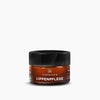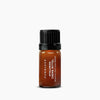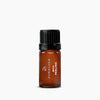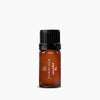
January 26, 2021
The influence of our diet on the skin – Interview with Dr. Sophia Wachner
by Leonie Poppe
"Our body can only work with what we feed it from the outside. A good, healthy and appropriate diet is very important," explains Dr. Sophia Wachner, functional medicine doctor, nutritionist and specialist in stress medicine and intestinal health from Munich. And that is precisely why we are devoting ourselves to the topic of nutrition and skin. We asked what influence our diet has on the skin.
For this, I enlisted the professional support of Dr. Sophia Wachner. In the first interview, we will generally look at the topic of nutrition and skin and functional medicine. Functional medicine? Have you ever heard of or had experience with this medical approach? Generally speaking, it is primarily about finding out the causes and connections between diseases: "If I have a skin disease, that does not necessarily mean that the skin itself is also diseased. The causes may lie somewhere else in the body." A broad and exciting medical approach. Dr. Sophia explains what the medical approach is all about, why a holistic approach is so important, what role nutrition plays in it and how we can use it to positively influence the appearance of our skin.
In the second interview, we will focus on our super organ, the intestine. We will talk about the important role the intestine plays, what the microbiome has to do with it and how we can use nutritional supplements to support our diet.
Interview I
- What is functional medicine?
- Why is a holistic approach so important?
- What role does a good diet play?
- Can we really influence the appearance of our skin through our diet?
- Are there any foods we should generally avoid?
- Are there foods that we can use to support our skin?
Interview II
- To what extent does the intestine play an important role in our health? What are its functions?
- What could go wrong?
- What exactly is the microbiome?
- How does our diet influence the microbiome?
- What does the microbiome do for our health?
- Can dietary supplements help here? If so, which ones?
- If I am desperate about my skin, suffering from acne or another skin condition, what would be the best course of action?
- As a functional medicine practitioner, what final tip would you give to our community?
Have you seen our joint IGTVs yet? You can watch the interview as a video on our channel on Instagram and Facebook.
And now, enjoy reading! Or to use Sophia's words: Let's turn the puzzle pieces together "to find out how health can be restored."
#skintalk with Dr. Sophia Wachner about nutrition & skin

Sophia, what exactly is functional medicine?
Dr. Sophia Wachner: Functional medicine is a medical approach that originally comes from the USA and is an alternative to our highly specialized conventional medicine system. It is primarily about finding out the causes and connections between illnesses. It is particularly important to me not only to treat symptoms, but to find out together with the patient what the real cause is, so that healing and lasting health can ultimately be achieved.
Why is a holistic approach so important?
Dr. Sophia Wachner: Let's take a skin disease, for example. If I have a skin disease, that doesn't necessarily mean that the skin organ itself is diseased. The cause could lie somewhere else in the body.
That's why it's important to take a step back and look at the whole body and not just the symptoms.
What role does a good diet play?
Dr. Sophia Wachner: Our body is supplied with proteins, vitamins, minerals and fats via the bloodstream. Our body can of course only work with what we supply to it from the outside. A good, healthy and appropriate diet is very important. That doesn't mean that it isn't very difficult to eat very healthily these days, because it has simply become very complex.
We try to eat ethically, we care about animal welfare, but we also care about the quality of our food. At the same time, we also try to take our individual needs and tolerances into account. That makes the whole thing very complex.
Can we really influence the appearance of our skin through our diet?
Dr. Sophia Wachner: Yes, of course! The better we eat and therefore also feed our skin, the healthier it is. Conversely, if we eat unsuitable or bad foods, our skin's appearance can change for the worse.
Are there any foods we should generally avoid?
Dr. Sophia Wachner: It's always a bit difficult to make general statements in functional medicine because it's very individual. Basically, the dose makes the poison. If I consume a lot of sugar or a lot of alcohol, then it will obviously have a bad effect on my skin.
Are there foods that we can use to support our skin?
Dr. Sophia Wachner: Yes, we can, for example, drink enough. We can make sure that we eat unprocessed food, that we eat a lot of green things, i.e. vegetables with lots of good secondary plant substances. And we can also make the way we eat a top priority. Prepare things ourselves, give ourselves some rest, sit down, eat in peace, chew well. These are all factors that are very important when it comes to nutrition and health.
#skintalk with Dr. Sophia Wachner about gut & skin

To what extent does the intestine play an important role in our health? What are its functions?
Dr. Sophia Wachner: The intestine plays a crucial role in health. We are what we eat. That is, what we ultimately absorb into our cells. The intestine decides what goes into our body and what is excreted. A large part of the immune system is also located in the intestine, which is absolutely crucial for a healthy body. But a lot can also go wrong.
What could go wrong?
Dr. Sophia Wachner: It can become problematic due to external influences. For example, when you take the pill, a lot of hormones affect the intestines from the outside. This can cause small holes in the intestinal mucosa, creating what is known as a leaky gut. This allows toxins or other substances to enter the body and stimulates the immune system, which can cause problems. These microorganisms can work for us, but also against us.
What exactly is the microbiome?
Dr. Sophia Wachner: The microbiome consists of all the microorganisms that inhabit us, including, of course, the intestines, the skin and the lungs.
How does our diet influence the microbiome?
Dr. Sophia Wachner: Of course, the microorganisms in the intestines eat exactly what we eat. And if we eat a lot of sugar, for example, we may be feeding fungi that are in our intestines and that we don't want there.
What does the microbiome do for our health?
Dr. Sophia Wachner: We can't say for sure yet. But the more diverse a microbiome is, the healthier the organism. You can imagine it as a garden. A garden with many different plants in which the ecosystem complements each other well is a healthy garden. If you destroy one type of plant with antibiotics or pesticides, the weeds can take over and the ecosystem is disrupted. That's how it works with the microbiome too.
Can dietary supplements help here? If so, which ones?
Dr. Sophia Wachner: You can support the microbiome in a targeted manner. For example, after antibiotic therapy. If a lot of the microbiome has been damaged as a result, you can use probiotics to help it to be rebuilt quickly.
Can dietary supplements also generally support nutrition?
Dr. Sophia Wachner: They can be a good support, but I am in favor of targeted use. In other words, you should first check your blood to see if there is a deficiency. If there is a gap in your diet, you can then use them there specifically. Omega 3 fatty acids, magnesium and vitamin D are usually lacking. These dietary supplements can be taken without any risk.
If I am desperate about my skin, suffering from acne or another skin condition, what would be the best course of action?
Dr. Sophia Wachner: Good skin care products are a very good start. In functional medicine, you would try to find the triggers. Is it stress, is it a hormonal imbalance, are they food intolerances? What is the cause? Then I would try to get to the bottom of the matter together with a good holistic doctor or a good functional medicine practitioner.
As a functional medicine practitioner, what final tip would you give to our community?
Dr. Sophia Wachner: Functional medicine offers a nice, different approach, especially for chronic illnesses or other illnesses that are not life-threatening but severely limit the quality of life. You turn the puzzle pieces together to find out how health can be restored.
I think it is so incredibly important to look at the body holistically. If we combine this approach with the many possibilities of conventional medicine, we have a really powerful tool at our disposal to really get to the bottom of the causes of certain illnesses on an individual basis. I would like to thank Dr. Sophia Wachner for the interview and for the insight into this exciting topic.
If you would like to know more about this topic, please feel free to write me a comment or send me an email. I look forward to your opinion and questions.
take care








